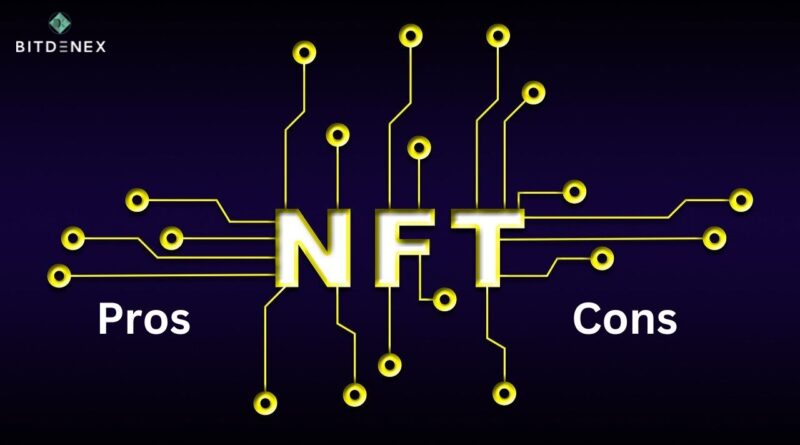The Pros and Cons of Non-Fungible Tokens
NFTs, like any other new technology, have both advantages and disadvantages. Discover them with our complete guide.
In recent years, non-fungible tokens (NFTs) have swept the digital landscape. From artwork to music, collectibles to virtual real estate, NFTs have altered our perceptions of ownership and value in the digital environment. NFTs, like any new technology, have both advantages and disadvantages. In this post, we will look at the advantages and disadvantages of non-fungible tokens, presenting a balanced perspective on their influence.
The Pros of NFTs
1. Authenticity and Ownership
One of the primary benefits of NFTs is their capacity to create digital ownership and validity. Unlike ordinary digital files, which can be easily copied or duplicated, NFTs are unique and cannot be reproduced. Each NFT carries a digital signature that confirms its legitimacy and ownership. This ground-breaking innovation has created new opportunities for artists, makers, and collectors to sell and trade digital goods safely.
2. Empowering Artists and Creators
NFTs have empowered artists and creators by letting them to monetise their digital works directly. Historically, artists have struggled to earn adequate recompense for their digital work. NFTs allow artists to keep complete control over their creations, establish their own prices, and receive a share of subsequent sales. This new revenue model has the potential to transform the art sector, giving artists greater financial stability and creative freedom.
3. Tokenizing Real-World Assets
NFTs have gone beyond the digital sphere, allowing for the tokenization of real-world assets. This has created new opportunities for fractional ownership and investment. Individuals can now own a portion of a tangible artwork, a real estate property, or even a classic car using NFTs. This democratisation of asset ownership enables those with little resources to engage in marketplaces that were previously unavailable.
4. NFT Royalties and Residual Income
Unlike traditional art sales, where artists often receive a one-time payment, NFTs enable artists to earn royalties on secondary sales. This means that artists can continue to receive a percentage of the sale price each time their NFT is resold. This concept of residual income has the potential to provide long-term financial stability for artists, ensuring they are fairly compensated for the continued value their creations generate.
The Controversies Surrounding NFTs
1. NFTs Environmental Impact
One of the most contentious issues with NFTs is their environmental impact. Minting NFTs requires sophisticated computations and relies significantly on blockchain technology, which costs a lot of energy. Critics claim that the carbon footprint connected with NFTs is significant and contributes to climate change. As the popularity of NFTs grows, it is critical to look at more sustainable alternatives to reduce their environmental impact.
2. NFTs Market Speculation and Bubble
The popularity of NFTs has resulted in a speculative market, with some people purchasing them primarily as an investment, hoping for exponential profits. Critics claim that this speculation has produced a bubble, and that the value of some NFTs may not be sustainable in the long run. Furthermore, the risk of fraud and scams in the NFT market raises questions concerning investor safety and market regulation.
3. NFTs Exclusivity and Accessibility
While NFTs have expanded options for artists and producers, they have also generated concerns about exclusivity and accessibility. The high expenses of minting and acquiring NFTs may make it difficult for emerging artists and others with limited financial resources to fully engage. This raises worries about whether NFTs will primarily benefit established artists and collectors, exacerbating the divide between the haves and have-nots in the art world.
4. NFTs Copyright and Intellectual Property Issues
The digital nature of NFTs has sparked worries regarding copyright and intellectual property protection. Because NFTs can be manufactured and sold by anybody, it is difficult to identify the original developer and provide correct acknowledgment. Unauthorised minting and selling of NFTs based on others’ work has already occurred, resulting in legal issues and challenges to preserving creators’ rights.
Buy and sell crypto in minutes with 0.20% trading fees at Bitdenex Exchange.

